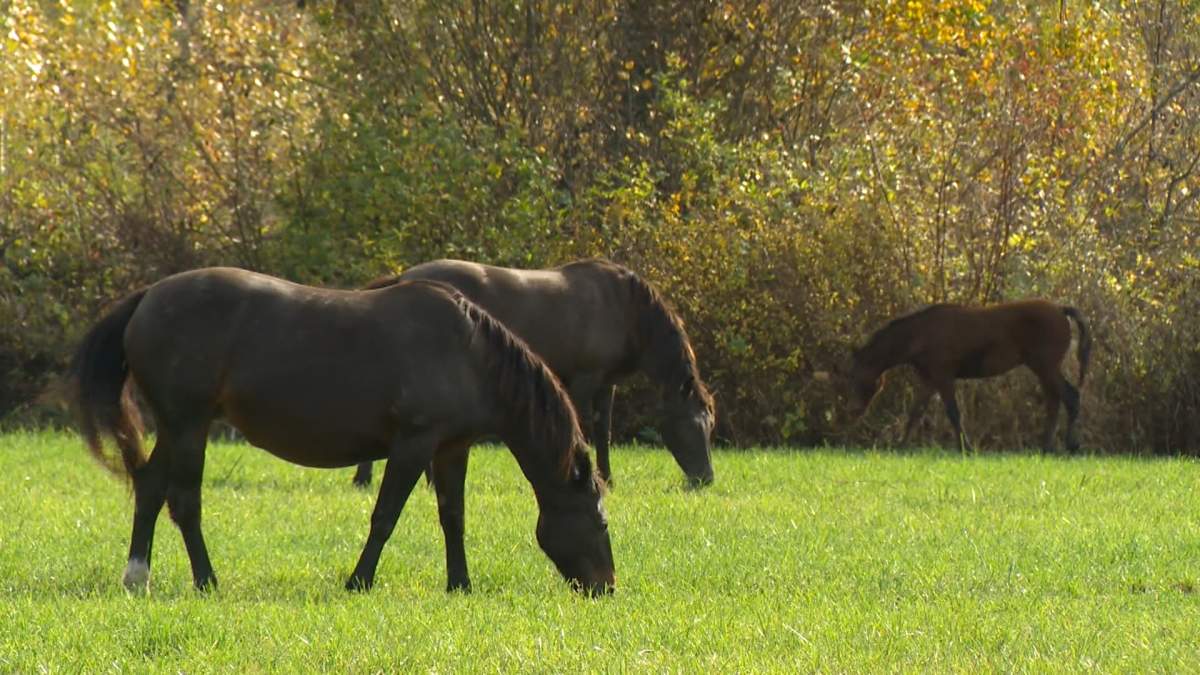People who live and travel along Highway 99 near Pemberton, B.C., say an ongoing situation is putting lives at risk.

Horses are roaming freely and two were killed on the busy highway last week after a car struck them.
Wayne Andrew, who owns most of the horses, told Global News he would like to see the highway fenced off in a way to protect the animals and the people but he can’t be the one to do that on his own.
“These horses are bred from way back, even before me when I was born,” he said. “But we’ve looked after this herd.”
Pemberton resident Cam McIvor told Global News this isn’t a new issue — it’s been going on for more than two decades.
“My principle concerns are public safety, welfare of the animals, protection of private property and the cost to taxpayers.”

He said the horses, between 50 and 60 of them, roam free around the community.
“(They are) owned by an individual who does not contain them. They roam and forage on other people’s property throughout the year.” McIvor explained.

Get daily National news
He added that over the years some of the biggest issues involve the horses being hit by vehicles on the highway.
McIvor said he is concerned someone is going to die in an accident at some point.
He would like to see them fenced in and taken care of.
But Rosa Emhalqwem Andrew, Wayne’s sister, told Global News the horses are not roaming on private property.
“We’re still the rightful owners to our traditional territory,” she said. “We’ve never ceded or surrendered our rights to our traditional territory.”
Andrew said the horses know it’s their grazing area and they have been going to the same areas to feed for years.
They are concerned about the horses and the people but the highway was put through their land without the consent of the First Nations people.

Jen Ford, chair of the Squamish-Lillooet Regional District, said they have been aware of the issue with these horses for many years.
“There are certainly concerns in the community about the safety of the horses as well as the safety and well-being of everyone in the are, when people are driving and the horses sometimes step out of nowhere,” Ford said.
She explained that due to the fact that the horses move from property to property and for most of the winter they spend their time close to the highway, so that actually falls under the B.C. Ministry of Transportation and Infrastructure.
“So that is where the majority of the jurisdiction lies,” Ford added.
“We do know that there is no facility within this area, within the region that could capture and house these horses, short of private property or a private owner taking ownership and responsibility for them.”
Ford said the RCMP has been involved in this file for “many years” but due to the size of the horses and the difficulty in catching them, little has been done at this time.
Global News reached out to four different jurisdictions about this issue — Tribal police, RCMP, the regional district and the Lil’wat Nation council — but none of them responded to a request for comment.
- B.C. First Nation opposes cull on its territory after footage of ‘Judas’ wolf
- Tumbler Ridge students won’t ‘return to current school site’ after mass shooting
- What is B.C.’s Mental Health Act and why is it relevant to Tumbler Ridge shooting?
- They ‘ran into gunfire’: Impact of the Tumbler Ridge shooting on first responders











Comments
Want to discuss? Please read our Commenting Policy first.